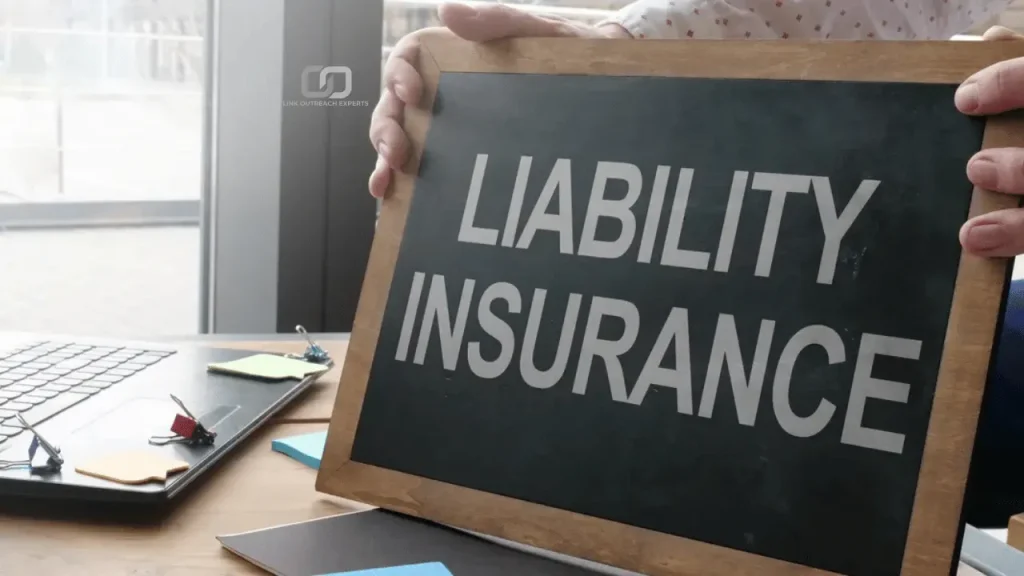Liability insurance is important for small businesses. It helps cover costs if someone sues the business for injury or damage. Without it, a small business may have to pay legal fees, medical expenses, or repair costs. This can be expensive and hurt the business financially. Liability insurance gives protection and helps businesses stay secure.
Businesses need liability coverage to handle unexpected risks. Accidents can happen anytime, even with safety measures. A customer might slip, or a product may cause harm. Insurance helps pay for claims, so the business does not suffer losses. It also builds trust with clients and partners.
Table of Contents
What Is Liability Insurance
Liability insurance is a type of protection for businesses. It helps cover costs if the business is responsible for injuries, damages, or legal claims. If someone sues the business, this insurance helps pay for legal fees, medical bills, and settlement costs. Without it, the business may have to cover these expenses alone, which can be a huge financial burden.
This insurance is important for all types of businesses. Accidents can happen, even when a business takes safety precautions. A customer could slip and fall, or a product might cause harm. In such cases, liability insurance helps pay for claims, preventing unexpected losses. It ensures that a small mistake or accident does not lead to serious financial trouble.
Many clients, landlords, and partners require businesses to have liability insurance before working with them. It shows that the business is responsible and prepared for risks. Having liability coverage helps businesses operate smoothly and protects their reputation. When exploring insurance options, understanding how much does business liability insurance cost will help you make informed decisions.
Types of Liability Insurance for Small Businesses
There are different types of liability insurance for small businesses. Each type provides protection based on the risks a business may face.
General Liability Insurance
General liability insurance covers third-party injuries and property damage. If a customer slips and gets hurt at the business location, this insurance helps pay medical bills and legal fees. It also covers damage caused to someone else’s property during business operations. This type of insurance is essential for businesses with physical locations or those that interact with customers regularly.
Professional Liability Insurance
Professional liability insurance protects service-based businesses from claims of mistakes or negligence. If a business provides wrong advice or makes an error that causes financial loss, this insurance helps cover legal costs. It is useful for consultants, lawyers, healthcare providers, and other professionals. Even if a business follows best practices, clients may still file claims, making this coverage important.
Product Liability Insurance
Product liability insurance helps businesses that sell or manufacture products. If a product causes harm or injury to a customer, this insurance covers legal claims and settlements. It is essential for retailers, manufacturers, and food businesses. Even with strict quality control, defective products can lead to costly lawsuits, making this coverage necessary for businesses dealing with physical goods.
Factors Affecting the Cost of Liability Insurance
Business Industry and Risk Level
The type of business affects insurance costs. High-risk industries, like construction or manufacturing, have higher premiums because accidents are more likely. Low-risk businesses, such as consulting or online services, usually pay less since they have fewer physical risks. Insurance companies assess risk levels before deciding the cost.
Business Size and Revenue
Larger businesses with more employees and customers typically pay more for liability insurance. A company with a high revenue also faces greater risks, leading to higher costs. Small businesses with fewer employees and lower sales usually have lower insurance premiums.
Coverage Limits and Deductibles
Higher coverage limits mean better protection, but they also increase insurance costs. If a business chooses a lower deductible, it pays less out of pocket for claims, but the premium will be higher. Balancing coverage and deductible amounts helps manage costs effectively.
Location of the Business
The business location also affects insurance prices. Businesses in high-risk areas, such as places prone to natural disasters or crime, may pay more. States and cities have different insurance regulations, which can also influence the cost. Businesses in safer locations may have lower premiums.
Average Cost of Liability Insurance for Small Businesses
The cost of liability insurance depends on several factors, including business type, location, and coverage limits. On average, small businesses pay between $40 to $80 per month for general liability insurance. This adds up to around $500 to $1,000 per year. However, businesses in high-risk industries, such as construction, may pay more due to increased risks.
Professional liability insurance costs vary depending on the industry. Service-based businesses like consultants or accountants typically pay $600 to $1,500 per year. Product liability insurance, which protects businesses that manufacture or sell products, can range from $1,000 to $3,000 per year, depending on product risks. Comparing quotes from multiple providers and adjusting coverage limits can help businesses find the best price.
Techniques to Reduce Liability Insurance Costs
Bundle Insurance Policies
Many insurance companies offer discounts when businesses bundle multiple policies. Combining general liability, property, and workers’ compensation insurance can lower overall costs. This method provides better coverage at a reduced price.
Improve Workplace Safety
A safer workplace reduces the risk of accidents and claims. Businesses should follow safety regulations, train employees, and maintain equipment properly. Fewer accidents mean fewer claims, which helps lower insurance premiums over time.
Choose Higher Deductibles
A higher deductible means the business pays more out of pocket before insurance covers a claim. This lowers monthly premiums, making insurance more affordable. However, businesses should ensure they can cover the deductible if needed.
Compare Insurance Providers
Different insurers offer different rates and discounts. Getting quotes from multiple providers helps businesses find the best coverage at the lowest price. It’s also important to review policy details to avoid paying for unnecessary coverage.
Choose the Right Liability Insurance Policy
Choosing the right liability insurance policy is important for protecting a business. The first step is to assess the risks involved. A business should consider potential liabilities such as customer injuries, property damage, or professional mistakes. Understanding these risks helps in selecting the right type of insurance, whether it’s general, professional, or product liability coverage.
Comparing different insurance providers is also important. Each company offers different rates, coverage options, and discounts. Business owners should get quotes from multiple providers to find the best deal. Checking customer reviews and the company’s reputation can help ensure reliable service. Choosing an insurer with good customer support can also make the claims process easier.
Before purchasing a policy, it is essential to understand the terms and exclusions. Some policies may not cover specific risks, which could leave a business unprotected. Reading the policy details carefully helps avoid issues later. If the process feels complicated, consulting an insurance expert can provide guidance.
Conclusion
Liability insurance is important for protecting small businesses from financial risks. The cost depends on factors like business type, location, and coverage limits. On average, small businesses pay between $500 to $1,000 per year for general liability insurance. Higher-risk businesses may pay more.
Choosing the right policy requires assessing risks, comparing providers, and understanding policy terms. Businesses can reduce costs by improving safety, bundling policies, and selecting higher deductibles. Having proper liability insurance helps businesses operate with confidence, avoiding major financial losses from lawsuits or accidents.


